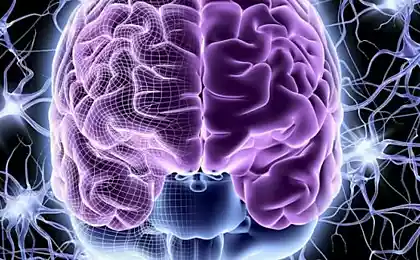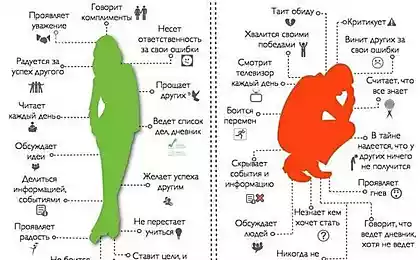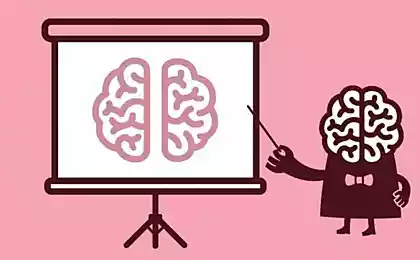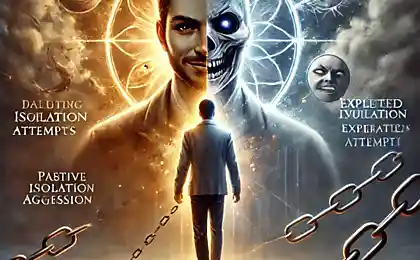544
Neuroeconomics: how do we decide the risk and cooperate
How our brain makes decisions? What determines our preferences? How much we depend upon your social image? Whether altruism and choice in favor of the common good is the pathology? To these and other questions will help us to answer neuroeconomics.
More recently, Economics was the epoch of imperialism, which began with Gary Becker, and developed his numerous disciples and followers. Economic imperialism allowed the use of economic concepts in a variety of science – political science, anthropology, and sociology. Arrogant expansion of other Sciences by economists and their opponents attempt to prove the limitations of classical economic theory caused the opposite effect – the economy is already taking a lot of techniques and concepts developed in psychology, sociology, botany. One of these new areas was neuroeconomics is a science that deals with the study of the neurobiological bases of decision-making.
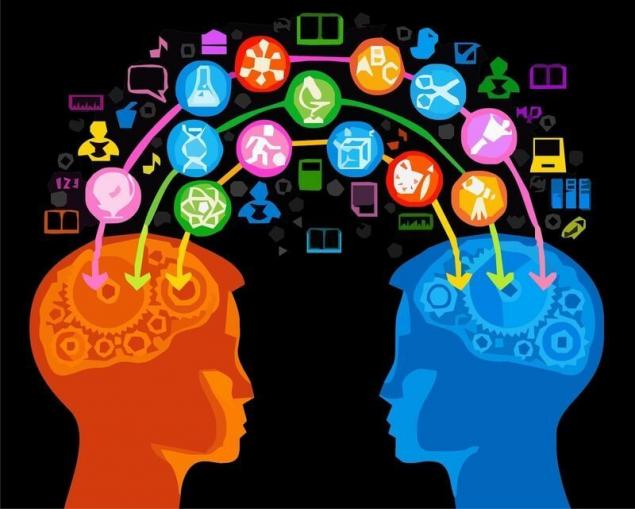
The article with the same title, written by a group of authors, among them Colin Camerer (California Institute of technology), Jonathan Cohen (Princeton University), Ernst Fehr (University of Zurich), Paul Glimcher (new York University), David Laibson (Harvard University), and was the subject of our attention.
Work focuses on two main methodological issues:
and four annexes:
The authors found that currently, neuroeconomics is in its infancy, but its development will inevitably lead to enormous results in the economy.
We met with the content of the article and decided to highlight a few interesting aspects found in the work of scientists.
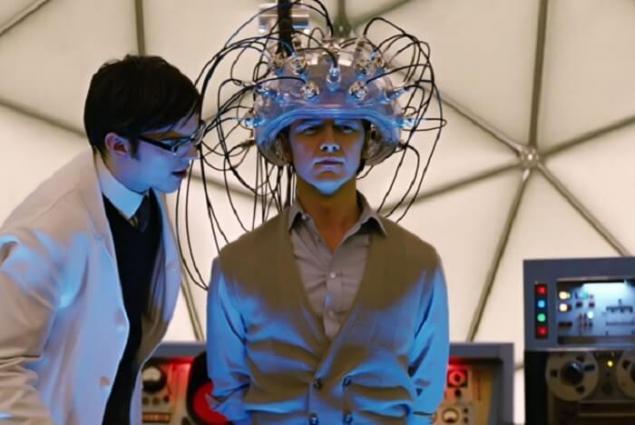
The manipulation of the motives
In the section "Risky choice" the authors describe a study proving the connection between people's reactions to certain situations with the effects on a specific part of the brain.
If you go beyond the simple behavioral associations, we can see a number of evidence, the occurrence of biological exogenous changes in such States as stress, food satiety, visual images, the appearance of risk. According to the authors, these studies have not yet been analyzed comprehensively, but I suppose the transition from the idea that risk taking is a stable behavioral tendency, the idea that preferences are "state dependence" (in the familiar theory of decision-making), and depend on the mental and biological state. This is not a radical departure from standard Economics, but the awareness of correlation of mental States from external influences (such as advertising or stress), and the internal adjustment of the effects of these external factors.
For example, studies have found that the reaction to the feeling of risk meets the cerebellum. Simplistically, in the presence of risky situations, the activity of this part of the brain aktiviziruyutsya that provides a high probability of making one or another decision. Based on this fact, decision making in risky situations can be manipulated, upsetting, or, conversely, increasing the activity of the cerebellum to other methods of influence.
The paper discusses examples of different types of impacts carried out on the brain in the game "Ultimatum" that led to the adoption of the necessary decisions. The article made comments that these relationships are already actively perceived by the experts in the field of advertising and sales financial services. It is obvious that the majority of marketing methods and the stream of advertising designed to manipulate the intentions of potential consumers of goods or services.
If previously the bulk of these methods worked on the feelings, emotion, and other psychologically conditioned factors, in the near future, the depth of influence will penetrate the micro - and neural levels.
For example, the effect of "25 fps" is well known to us for a long time. Ahead of us are waiting for more sophisticated methods. Farther come Naracoorte research in the field of decision-making, the more likely these techniques will appear in service marketing, but what is worse – governmental and non-governmental organizations pursuing a global goal than selling goods. In this regard, the fantastic sketches of Hollywood blockbusters about the crowds of brainwashed weak people-driven sound and other impulses do not look so unrealistic.
The neural scheme of social preferences
In the section "the Neural circuit of social preferences," scientists discusses the neurological processes that cause deviations from the behaviour in their own interests (i.e., the neural circuit of social preferences).
Traditionally, the theory of social preferences is based on the concept of assessing the utility (D. Kahneman). The usefulness is defined as the utility function that affect the decisions – the notion is equivalent to the economic concept of revealed preference. The usefulness of that may vary depending on the expectations and previous experiences of decision-making.
The main issue which has recently concerned the research — how the brain makes decisions, evaluates the utility, when the behavior of a person reflects his or her own benefit, and when is determined by competing social preferences (such as altruism, reciprocity or the rejection of injustice).
To better understand the nature of social preferences and sources of individual differences in behavior in the interests of others, including pathologies, the researchers conducted a series for neuroeconomics studies using MRI.
Here are some of them.
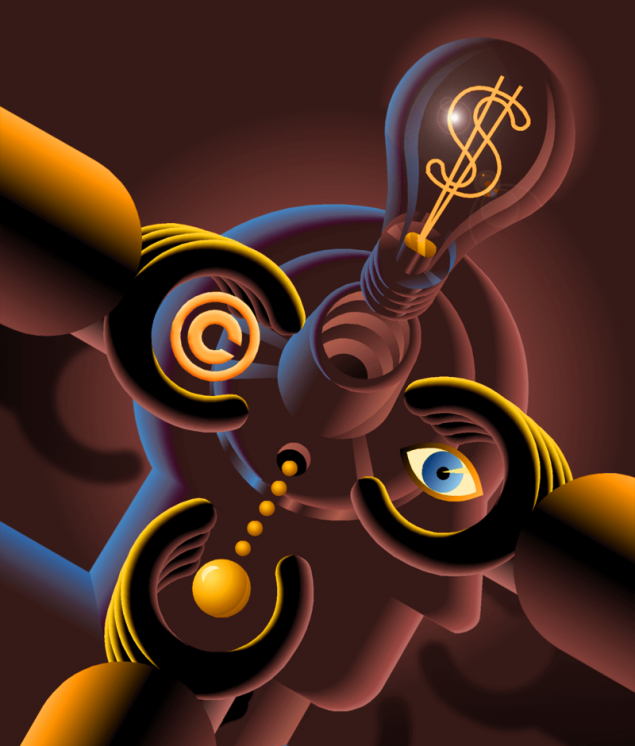
"The punishment of injustice"
For neuroeconomics studies have yielded interesting interpretation of some of the results of the game "Ultimatum". Experiments have shown that players frequently reject small amounts. This result was significant for the behaviorists, because he rejected the standard rational behavior (take any amount), which was dictated by the classic economy.
Supporters of the behavioral theories used to explain this choice as a "punishment for the proposal unjust division". For neuroeconomics studies using MRI have confirmed this result. The decision about the refusal of too little money was accompanied by a high level of activity in the spinal cord that is involved in the decision on awarding and punishment.
"Cooperation"
The theory of reciprocity and the rejection of injustice says that the "prisoners Dilemma", the subjects prefer mutual cooperation to unilateral behavior, while the latter leads to higher economic gains. Although these theories do not appeal to hedonistic arguments, but justice from the creation of the common good has hedonic value.
We can find confirmation of this statement in neurology. Two neuroimaging studies reported that with mutual cooperation of subjects with a partner of the person activating the ventral striatum, responsible for pleasure, is much higher compared to mutual cooperation with a computer partner.
"Social image"
Interesting is the study of processes of transfer of contributions to charity. According to the data obtained as a result of the MRI studies in Japan, activity in the bilateral striatum (which corresponds, as mentioned above, satisfaction) were stronger when charitable donations were made under the supervision than without it.
Thus, this is consistent with the hypothesis that strengthening of positive reputation in charitable donations as the main motivation for their implementation.
Irrational behavior as a symptom and consequences of deviation and variance
The article repeatedly discusses the deviations from the standard behavior when making decisions and exercising choice. In particular, the question – whether is an anomaly and pathology altruistic motives and the choice in favor of the common good, committed to the detriment of own benefit.
Results of calm – the reason lies not in the pathology, and hedonic aspirations (aspirations for their own pleasure).
In this sense, or perceived many of the realities of modern life, its own judgments and examples from the literature. For example, the novel F. M. Dostoevsky "Idiot" can be completely rethought. Of course, mental illness of Prince Myshkin had exacerbated his natural sense of justice and had an impact on his behavior. However, if you rely on the data of neuroeconomics, sickness nor faith can not be exhaustive reasons it is indicative of the moral, spiritual humility, and altruistic love of neighbor.
If the success of neuroeconomics will continue to develop in this direction, there is a big risk of disappointment in the fundamental human virtues that can actually be a selfish aspirations of man.
However, daily reality rather refutes the findings of the research, because the altruism and keen sense of justice today is really nothing more than an anomaly.
As you can see, neuroeconomics is a new and very promising and interesting branch of knowledge. A huge amount of research on practically all the most topical contemporary issues of economy will resolve the issue of the right to existence of this science. Many examples prove how awesome the results are, the study of brain activity and how this activity determines the economic behavior of people.
Neuroeconomics has another very important mission – addresses the gaps left by the other approaches.
First of all, it concerns the application of psychology in the economy, and in particular – behavioral approach. The skepticism with which treat behavioral explanations of the motivations of the subjects, removed a slender number of precise indicators of neurological research.
Also interesting: video lectures: 7 lectures Tatyana Chernihiv on brain and language
Neuroscientist John Lilly about a non-existent objectivity and sense of fear
Without a doubt, neuroeconomics is still in its infancy. One can only imagine what enormous discoveries await science in this field and how far can people in discovering the great mysteries of the human mind.
For neuroeconomics developments will be useful not only to the explanations and interpretations of the eternal questions of Economics, but, obviously, are interested in psychology, sociology, political science, public administration and any other Sciences and spheres of human activity. All this will add to the overall educational Foundation of humanity, it was without prejudice to private individuals.published
P. S. And remember, just changing your mind — together we change the world! ©
Source: monocler.ru/neyroekonomika/
More recently, Economics was the epoch of imperialism, which began with Gary Becker, and developed his numerous disciples and followers. Economic imperialism allowed the use of economic concepts in a variety of science – political science, anthropology, and sociology. Arrogant expansion of other Sciences by economists and their opponents attempt to prove the limitations of classical economic theory caused the opposite effect – the economy is already taking a lot of techniques and concepts developed in psychology, sociology, botany. One of these new areas was neuroeconomics is a science that deals with the study of the neurobiological bases of decision-making.

The article with the same title, written by a group of authors, among them Colin Camerer (California Institute of technology), Jonathan Cohen (Princeton University), Ernst Fehr (University of Zurich), Paul Glimcher (new York University), David Laibson (Harvard University), and was the subject of our attention.
Work focuses on two main methodological issues:
- neurobiology
- neuroimaging
and four annexes:
- the study of risk
- intertemporal choice
- social preferences,
- strategic behaviour.
The authors found that currently, neuroeconomics is in its infancy, but its development will inevitably lead to enormous results in the economy.
We met with the content of the article and decided to highlight a few interesting aspects found in the work of scientists.

The manipulation of the motives
In the section "Risky choice" the authors describe a study proving the connection between people's reactions to certain situations with the effects on a specific part of the brain.
If you go beyond the simple behavioral associations, we can see a number of evidence, the occurrence of biological exogenous changes in such States as stress, food satiety, visual images, the appearance of risk. According to the authors, these studies have not yet been analyzed comprehensively, but I suppose the transition from the idea that risk taking is a stable behavioral tendency, the idea that preferences are "state dependence" (in the familiar theory of decision-making), and depend on the mental and biological state. This is not a radical departure from standard Economics, but the awareness of correlation of mental States from external influences (such as advertising or stress), and the internal adjustment of the effects of these external factors.
For example, studies have found that the reaction to the feeling of risk meets the cerebellum. Simplistically, in the presence of risky situations, the activity of this part of the brain aktiviziruyutsya that provides a high probability of making one or another decision. Based on this fact, decision making in risky situations can be manipulated, upsetting, or, conversely, increasing the activity of the cerebellum to other methods of influence.
The paper discusses examples of different types of impacts carried out on the brain in the game "Ultimatum" that led to the adoption of the necessary decisions. The article made comments that these relationships are already actively perceived by the experts in the field of advertising and sales financial services. It is obvious that the majority of marketing methods and the stream of advertising designed to manipulate the intentions of potential consumers of goods or services.
If previously the bulk of these methods worked on the feelings, emotion, and other psychologically conditioned factors, in the near future, the depth of influence will penetrate the micro - and neural levels.
For example, the effect of "25 fps" is well known to us for a long time. Ahead of us are waiting for more sophisticated methods. Farther come Naracoorte research in the field of decision-making, the more likely these techniques will appear in service marketing, but what is worse – governmental and non-governmental organizations pursuing a global goal than selling goods. In this regard, the fantastic sketches of Hollywood blockbusters about the crowds of brainwashed weak people-driven sound and other impulses do not look so unrealistic.
The neural scheme of social preferences
In the section "the Neural circuit of social preferences," scientists discusses the neurological processes that cause deviations from the behaviour in their own interests (i.e., the neural circuit of social preferences).
Traditionally, the theory of social preferences is based on the concept of assessing the utility (D. Kahneman). The usefulness is defined as the utility function that affect the decisions – the notion is equivalent to the economic concept of revealed preference. The usefulness of that may vary depending on the expectations and previous experiences of decision-making.
The main issue which has recently concerned the research — how the brain makes decisions, evaluates the utility, when the behavior of a person reflects his or her own benefit, and when is determined by competing social preferences (such as altruism, reciprocity or the rejection of injustice).
To better understand the nature of social preferences and sources of individual differences in behavior in the interests of others, including pathologies, the researchers conducted a series for neuroeconomics studies using MRI.
Here are some of them.

"The punishment of injustice"
For neuroeconomics studies have yielded interesting interpretation of some of the results of the game "Ultimatum". Experiments have shown that players frequently reject small amounts. This result was significant for the behaviorists, because he rejected the standard rational behavior (take any amount), which was dictated by the classic economy.
Supporters of the behavioral theories used to explain this choice as a "punishment for the proposal unjust division". For neuroeconomics studies using MRI have confirmed this result. The decision about the refusal of too little money was accompanied by a high level of activity in the spinal cord that is involved in the decision on awarding and punishment.
"Cooperation"
The theory of reciprocity and the rejection of injustice says that the "prisoners Dilemma", the subjects prefer mutual cooperation to unilateral behavior, while the latter leads to higher economic gains. Although these theories do not appeal to hedonistic arguments, but justice from the creation of the common good has hedonic value.
We can find confirmation of this statement in neurology. Two neuroimaging studies reported that with mutual cooperation of subjects with a partner of the person activating the ventral striatum, responsible for pleasure, is much higher compared to mutual cooperation with a computer partner.
"Social image"
Interesting is the study of processes of transfer of contributions to charity. According to the data obtained as a result of the MRI studies in Japan, activity in the bilateral striatum (which corresponds, as mentioned above, satisfaction) were stronger when charitable donations were made under the supervision than without it.
Thus, this is consistent with the hypothesis that strengthening of positive reputation in charitable donations as the main motivation for their implementation.
Irrational behavior as a symptom and consequences of deviation and variance
The article repeatedly discusses the deviations from the standard behavior when making decisions and exercising choice. In particular, the question – whether is an anomaly and pathology altruistic motives and the choice in favor of the common good, committed to the detriment of own benefit.
Results of calm – the reason lies not in the pathology, and hedonic aspirations (aspirations for their own pleasure).
In this sense, or perceived many of the realities of modern life, its own judgments and examples from the literature. For example, the novel F. M. Dostoevsky "Idiot" can be completely rethought. Of course, mental illness of Prince Myshkin had exacerbated his natural sense of justice and had an impact on his behavior. However, if you rely on the data of neuroeconomics, sickness nor faith can not be exhaustive reasons it is indicative of the moral, spiritual humility, and altruistic love of neighbor.
If the success of neuroeconomics will continue to develop in this direction, there is a big risk of disappointment in the fundamental human virtues that can actually be a selfish aspirations of man.
However, daily reality rather refutes the findings of the research, because the altruism and keen sense of justice today is really nothing more than an anomaly.
As you can see, neuroeconomics is a new and very promising and interesting branch of knowledge. A huge amount of research on practically all the most topical contemporary issues of economy will resolve the issue of the right to existence of this science. Many examples prove how awesome the results are, the study of brain activity and how this activity determines the economic behavior of people.
Neuroeconomics has another very important mission – addresses the gaps left by the other approaches.
First of all, it concerns the application of psychology in the economy, and in particular – behavioral approach. The skepticism with which treat behavioral explanations of the motivations of the subjects, removed a slender number of precise indicators of neurological research.
Also interesting: video lectures: 7 lectures Tatyana Chernihiv on brain and language
Neuroscientist John Lilly about a non-existent objectivity and sense of fear
Without a doubt, neuroeconomics is still in its infancy. One can only imagine what enormous discoveries await science in this field and how far can people in discovering the great mysteries of the human mind.
For neuroeconomics developments will be useful not only to the explanations and interpretations of the eternal questions of Economics, but, obviously, are interested in psychology, sociology, political science, public administration and any other Sciences and spheres of human activity. All this will add to the overall educational Foundation of humanity, it was without prejudice to private individuals.published
P. S. And remember, just changing your mind — together we change the world! ©
Source: monocler.ru/neyroekonomika/
